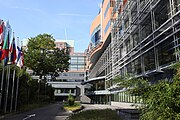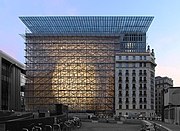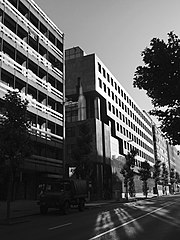
The Council of the European Union, often referred to in the treaties and other official documents simply as the Council, and informally known as the Council of Ministers, is the third of the seven Institutions of the European Union (EU) as listed in the Treaty on European Union. It is one of two legislative bodies and together with the European Parliament serves to amend and approve or veto the proposals of the European Commission, which holds the right of initiative.
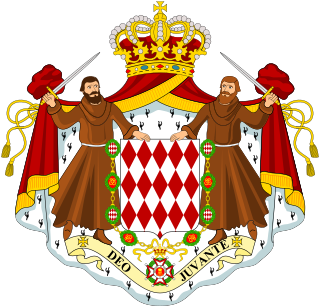
The politics of Monaco take place within the framework of a constitutional monarchy, with the Prince of Monaco as head of state, with some powers devolved to several advisory and legislative bodies.
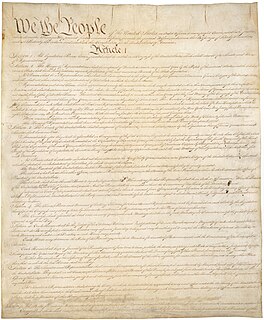
Legislation is the process or product of enrolling, enacting, or promulgating law by a legislature, parliament, or analogous governing body. Before an item of legislation becomes law it may be known as a bill, and may be broadly referred to as "legislation" while it remains under consideration to distinguish it from other business. Legislation can have many purposes: to regulate, to authorize, to outlaw, to provide (funds), to sanction, to grant, to declare, or to restrict. It may be contrasted with a non-legislative act by an executive or administrative body under the authority of a legislative act.
Unicameralism is a type of legislature, which consists of one house or assembly, that legislates and votes as one.

A council is a group of people who come together to consult, deliberate, or make decisions. A council may function as a legislature, especially at a town, city or county/shire level, but most legislative bodies at the state/provincial or national level are not considered councils. At such levels, there may be no separate executive branch, and the council may effectively represent the entire government. A board of directors might also be denoted as a council. A committee might also be denoted as a council, though a committee is generally a subordinate body composed of members of a larger body, while a council may not be. Because many schools have a student council, the council is the form of governance with which many people are likely to have their first experience as electors or participants.

The Bizone or Bizonia was the combination of the American and the British occupation zones on 1 January 1947 during the occupation of Germany after World War II. With the addition of the French occupation zone on 1 August 1948 the entity became the Trizone. Later, on 23 May 1949, the Trizone became the Federal Republic of Germany, commonly known as West Germany.

The Pan-African Parliament (PAP), also known as the African Parliament, is the legislative body of the African Union and held its inaugural session in March 2004. The PAP exercises oversight, and has advisory and consultative powers, lasting for the first five years. Initially the seat of the Pan-African Parliament was in Addis Ababa, Ethiopia, but it was later moved to Midrand, Johannesburg, South Africa. The goal in establishing the parliament was creating a space where people from all states of Africa could meet, deliberate, and pass some policy on issues that effect the entire continent of Africa.

The State Council was the supreme state advisory body to the Tsar in Imperial Russia. From 1906, it was the upper house of the parliament under the Russian Constitution of 1906.

The institutions of the European Union are the seven principal decision-making bodies of the European Union (EU). They are, as listed in Article 13 of the Treaty on European Union:

The politics of the European Union are different from most other polities and states due to the unique nature of the European Union. The EU is similar to a confederation, where many policy areas are federalised into common institutions capable of making law; the competences to control foreign policy, defence policy or the majority of direct taxation policies are mostly reserved for the twenty-seven state governments. These areas are primarily under the control of the EU's member states although a certain amount of structured co-operation and coordination takes place in these areas. For the EU to take substantial actions in these areas, all Member States must give their consent. Union laws that override State laws are more numerous than in historical confederations; however the EU is legally restricted from making law outside its remit or where it is no more appropriate to do so at a state or local level (subsidiarity) when acting outside its exclusive competences. The principle of subsidiarity does not apply to areas of exclusive competence.

Ana Isabel de Palacio y del Valle Lersundi in Madrid, daughter of Luis María de Palacio y de Palacio, 4th Marqués de Matonte, and wife Luisa Mariana del Valle Lersundi y del Valle, was Spain's minister for foreign affairs in the People's Party (PP) government of José María Aznar from July 2002 to March 2004. Before this she was a lawyer in Madrid and then a Member of the European Parliament from 1994 to 2002. In March 2012, she was appointed an elective member of the Spanish Council of State. She currently is the founding partner of Palacio y Asociados, a Madrid-based consulting and law firm, and a senior strategic counsel at Albright Stonebridge Group, a global business strategy firm.

The European Union adopts legislation through a variety of legislative procedures. The procedure used for a given legislative proposal depends on the policy area in question. Most legislation needs to be proposed by the European Commission and approved by the Council of the European Union and European Parliament to become law.
European Union (EU) concepts, acronyms, and jargon are a terminology set that has developed as a form of shorthand, to quickly express a (formal) EU process, an (informal) institutional working practice, or an EU body, function or decision, and which is commonly understood among EU officials or external people who regularly deal with EU institutions.

The Meghalaya Legislative Assembly is the unicameral legislature of the Indian state of Meghalaya.

The Arunachal Pradesh Legislative Assembly is the unicameral state legislature of Arunachal Pradesh state in north-eastern India. The seat of the Legislative Assembly is at Itanagar, the capital of the state. The Legislative Assembly comprises 60 Members of Legislative Assembly directly elected from single-seat constituencies.

The Delhi Legislative Assembly, also known as the Delhi Vidhan Sabha, is a unicameral legislature of the union territory of Delhi in India. At present, it consists of 70 members, directly elected from 70 constituencies. The tenure of the Legislative Assembly is five years unless dissolved sooner.

Evelyn Regner is an Austrian lawyer and politician who has been serving as a Member of the European Parliament from Austria since 2009. She is a member of the Social Democratic Party of Austria, part of the Progressive Alliance of Socialists and Democrats and elected Vice-President of the European Parliament.
Eva Alexandra Ingrid Irmgard Anna Högl is a German politician of the Social Democratic Party (SPD) who has been serving as Parliamentary Commissioner for the Armed Forces of Germany since May 2020.

Ministry of Legal Affairs serves as the Government of Myanmar's main legal advisory body. The Office is led by the Union Minister Thida Oo who is also serves as Attorney General. After the caretaker government was formed in 2021, the Union Attorney General's Office was reorganized into a ministry on 30 August 2021.
